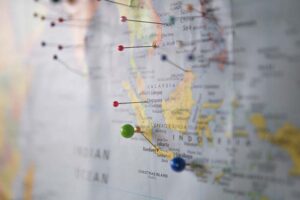Malaysia’s track record in protecting victims and survivors of trafficking, smuggling, and forced labour has been quite appalling.
The 2019 United States (US) government’s annual Trafficking in Persons (TIP) report listed Malaysia under “Tier 2 Watch List” – the second-lowest ranking – for not meeting the minimum standards to eliminate human trafficking. Malaysia had been ranked in this tier for eight years between 2011 and 2020.
Most recently, the 2021 US TIP report downgraded Malaysia to “Tier 3” – we are on the way to hit rock bottom. We were said to have failed to make significant efforts to address and criminally pursue credible allegations of labour trafficking. We also do not have sufficient inter-agency coordination and adequate victim services.
To illustrate our decline, Malaysian companies have in the last two years suffered from no-buy orders due to import bans by the US Customs and Border Protection (CBP) over forced labour allegations. The cases were well-publicised – FGV, ATA, Sime Darby, and Top Glove. The bans have caused damage to the reputations of the companies (and our country), not to mention disruptions to operations and supply chains.
The problems with Malaysia’s law enforcement measures to curb trafficking and forced labour are not new. For a number of years now since the passing of the Anti-Trafficking in Persons and Anti-Smuggling of Migrants Act 2007 (ATIPSOM), civil society organisations have been calling on the Malaysian government to amend the law to strengthen its legal framework. In this article, we examine why.
The state of play in Malaysia: Definitional problem
Much has already been written about the legal gaps in the ATIPSOM by the International Labour Organization (ILO) and the International Organization for Migration (IOM); we will not repeat them here.
The key issue is, normatively, the ATIPSOM does not protect victims and survivors of forced labour. Forced labour is defined by international law as work or service extracted from a person involuntarily or under threat.
Forced labour per se has not been criminalised under Malaysian law. It is only one element encapsulated under “exploitation” in section 2 of the ATIPSOM.
Exploitation refers to “all forms of sexual exploitation, forced labour or services, slavery or practices similar to slavery, servitude, any illegal activity or the removal of human organs”. However, exploiting someone is not an offence under the ATIPSOM. As such, forced labour (which is one form of exploitation) is also not an offence, and not considered a crime.
What action then can the prosecution take against one suspected of extracting forced labour from another person? Its only resort is to charge the offender under section 12 of the ATIPSOM for the offence of trafficking in persons. Nevertheless, prosecuting a case under section 12 is onerous because the prosecution not only has to prove exploitation, but it also has to prove that the labour or services of the victim were acquired or maintained through “coercion”.
Coercion is a term of art. It is currently defined in section 2 of the ATIPSOM as:
(a) threat of serious harm to or physical restraint against any person;
(b) any scheme, plan, or pattern intended to cause a person to believe that failure to perform an act would result in serious harm to or physical restraint against any person; or
(c) the abuse or threatened abuse of the legal process.
Unfortunately, the Malaysian courts have repeatedly interpreted coercion narrowly and demanded evidence of physical compulsion against the victim to indicate that he or she was forced or threatened with violence to work against his or her will (Subramaniam a/l Ramachandran).
Other forms of control such as fraud, abuse of vulnerabilities, and psychological coercion are thus excluded. In addition, the unilateral retention of passport and deferment of salaries, long hours of work, limited rest days, and cramped accommodations also do not qualify as coercion (Boon Fui Yan). See also Mong Soon Tat, Caryn Lim Bak Hiang, and Hii Hiong Ping. This means that many migrant workers in plantations, construction sites, manufacturing factories, and homes, who were deceived into working or are in debt bondage and face movement restrictions, are not protected by the ATIPSOM although their situations indicate trafficking or modern slavery according to international standards.
Thus, for a victim of human trafficking and forced labour, no effective remedies are available under the existing ATIPSOM unless he or she can show physical harm or restraint.
Malaysia’s efforts to address human trafficking and forced labour in terms of prosecution, protection, and prevention are being stymied by definitional handicaps. Working on the ground with victims and survivors of such crimes, civil society organisations understand the consequences of the deficiencies in the ATIPSOM. They have been lobbying for law reforms to be urgently made, but little progress has been forthcoming.
Moving forward
It was only to respond to our US TIP report rankings, and to ensure that Malaysia did not fall further behind in ranking, that the government announced its move to review the ATIPSOM some years back. When Pakatan Harapan came into power in 2018, there was hope that the legal disabilities in the ATIPSOM would finally be removed.
To hasten the process, the Malaysian Centre for Constitutionalism and Human Rights (MCCHR) through its Project Law Strike (PLS) assembled a team comprising Edmund, Yuen Xin, and Lim Wei Jiet to draft the required amendments to the ATIPSOM. The amendments were presented at a consultation on 2 October 2019 with regional and national experts, government officers, and civil society organisations. Thereafter, revisions were made to refine the draft.
On 17 January 2020, the MCCHR presented the final version of the amendments to the Council for Anti-Trafficking in Persons and Anti-Smuggling of Migrants (MAPO) at a closed-door meeting for the government’s further deliberation.
Civil society recommendations for amendments to the ATIPSOM
Here, we list nine key amendments proposed by the PLS team, highlighted in red for easy reference.
1. Section 2: Amending the definition of “exploitation”
“exploitation” means all forms of sexual exploitation, forced labour or services including instances of unpaid salary, slavery or practices similar to slavery, servitude, any illegal activity or the removal of human organs;
2. Section 2: Amending the definition of “trafficking in persons”
“traffics”
king in persons”means all actions involved in acquiring or maintaining the labour or services of a personthrough coercion, and includes the act of recruiting, conveying, transferring, harbouring, providing or receiving a person for the purposes of this Act;
3. Section 2: Amending the definition of “coercion”
“Coercion” means:
(a) use of force;
(b) abduction;
(c) physical restraint;
(d) psychological restraint;
(e) any scheme, plan, or pattern intended to cause a person to believe that failure to perform an act would result in the use of force, abduction, physical restraint or psychological restraint against any person, that persons’ family member or associates;
(f) fraud;
(g) deception;
(h) any scheme, plan or pattern intended to mislead or misinform a person to entice that person to partake in a desired activity;
(i) abuse or threatened abuse of the legal process;
(j) abuse of power;
(k) abuse of the position of vulnerability of a person to an act of trafficking in persons; or
(l) the giving or receiving of payments or benefits to obtain the consent of a person having control over the trafficked person;
4. Section 2: Introducing a definition of “forced or compulsory labour”
“forced or compulsory labour” means all work or service which is exacted from any person under the menace of any penalty and for which the said person has not offered himself voluntarily;
The term “forced or compulsory labour” shall not include:
(a) any work or service exacted by virtue of compulsory military service laws for work of a purely military character;
(b) any work or service which forms part of the normal civic obligations of the citizens of a fully self-governing country;
(c) any work or service exacted from any person as a consequence of a conviction in a court of law, provided that the said work or service is carried out under the supervision and control of a public authority and that the said person is not hired to or placed at the disposal of private individuals, companies or associations;
(d) any work or service exacted in cases of emergency, that is to say, in the event of war or of a calamity or threatened calamity, such as fire, flood, famine, earthquake, violent epidemic or epizootic diseases, invasion by animal, insect or vegetable pests, and in general any circumstance that would endanger the existence or the well-being of the whole or part of the population; or
(e) minor communal services of a kind which, being performed by the members of the community in the direct interest of the said community, can therefore be considered as normal civic obligations incumbent upon the members of the community, provided that the members of the community or their direct representatives shall have the right to be consulted in regard to the need for such services;
5. Section 2: Introducing a definition of “slavery”
“slavery’’ means the state of being under the control of someone where a person is forced to work for another;
6. Section 2: Introducing a definition of “servitude”
“servitude’’ means the state of a persons subjected, voluntarily or involuntarily, to another person as a servant;
7. Section 13: Amending the elements of the offence of trafficking in persons by force or coercion
Offence of trafficking in persons by means of coercion
threat, force, etc.
13. Any person, who traffics in persons not being a child, for the purpose of exploitation and by means of coercion, by one or more of the following means:
(a) threat;
(b) use of force or other forms of coercion;
(c) abduction;
(d) fraud;
(e) deception;
(f) abuse of power;
(g) abuse of the position of vulnerability of a person to an act of trafficking in persons; or
(h) the giving or receiving of payments or benefits to obtain the consent of a person having control over the trafficked person;
commits an offence and shall, on conviction, be punished with imprisonment for a term not less than three years but not exceeding twenty years, and shall also be liable to fine.
8. New section 26L: Introducing an offence of slavery, servitude and forced or compulsory labour
26L. Slavery, servitude and forced or compulsory labour
(1) A person commits an offence of slavery or servitude if:
(a) the person holds another person in slavery or servitude and the circumstances are such that the person knows or ought to know that the other person is held in slavery or servitude; or
(b) the person requires another person to perform forced or compulsory labour and the circumstances are such that the person knows or ought to know that the other person is being required to perform forced or compulsory labour.
(2) In determining whether a person is being held in slavery or servitude or required to perform forced or compulsory labour, regard may be had to all the circumstances of the case.
(3) For example, regard may be had:
(a) to any of the person’s personal circumstances (such as the person being a child, the person’s family relationships, and any mental or physical illness) which may make the person more vulnerable than other persons; or
(b) to any work or services provided by the person.
(4) The consent of a person (whether an adult or a child) to any of the acts alleged to constitute holding the person in slavery or servitude, or requiring the person to perform forced or compulsory labour, does not preclude a determination that the person is being held in slavery or servitude, or required to perform forced or compulsory labour.
9. New section 57A: Introducing mandatory accountability and reporting duties on companies
57A. Transparency in supply chains
(1) A commercial organisation within subsection (2) must prepare a modern slavery, anti-trafficking in persons and anti-smuggling of migrants statement for each financial year of the organisation.
(2) A commercial organisation is within this subsection if it:
(a) supplies goods or services;
(b) has a total turnover of not less than an amount prescribed by regulations made by the Minister; and;
(c) has a total number of workers not less than an amount prescribed by regulations made by the Minister.
(3) A modern slavery, anti-trafficking in persons and anti-smuggling of migrants statement for a financial year is a statement of the steps the organisation has taken during the financial year to ensure that modern slavery, anti-trafficking in persons and anti-smuggling of migrants is not taking place:
(a) in any of its supply chains;
(b) in any part of its own business; and
(c) a statement that the organisation has taken such steps.
(4) An organisation’s modern slavery, anti-trafficking in persons and anti-smuggling of migrants statement may include information about:
(a) the organisation’s structure, its business and its supply chains;
(b) its policies in relation to modern slavery, anti-trafficking in persons and anti-smuggling of migrants;
(c) its due diligence processes in relation to modern slavery, anti-trafficking in persons and anti-smuggling of migrants in its business and supply chains;
(d) the parts of its business and supply chains where there is a risk of modern slavery, anti-trafficking in persons and anti-smuggling of migrants taking place, and the steps it has taken to assess and manage that risk including the recruitment of workers;
(e) its effectiveness in ensuring that the modern slavery, anti-trafficking in persons and anti-smuggling of migrants is not taking place in its business or supply chains, measured against such performance indicators as it considers appropriate;
(f) the training about modern slavery, anti-trafficking in persons and anti-smuggling of migrants available to its staff and their labour providers including recruitment agents.
(5) A modern slavery, anti-trafficking in persons and anti-smuggling of migrants statement:
(a) if the organisation is a body corporate other than a limited liability partnership, must be approved by the board of directors (or equivalent management body) and signed by a director (or equivalent);
(b) the organisation is a limited liability partnership, must be approved by the members and signed by a designated member;
(c) if the organisation is any other kind of partnership, must be signed by a partner.
(6) If the organisation has a website, it must:
(a) publish the modern slavery, anti-trafficking in persons and anti-smuggling of migrants statement on that website; and
(b) include a link to the modern slavery, anti-trafficking in persons and anti-smuggling of migrants statement in a prominent place on that website’s homepage; or
(c) if the organisation does not have a website, it must provide a copy of the modern slavery, anti-trafficking in persons and anti-smuggling of migrants statement to anyone who makes a written request for one, and must do so before the end of the period of 30 days beginning with the day on which the request is received.
(7) The Minister:
(a) may issue guidance about the duties imposed on commercial organisations by this section; and
(b) shall publish any such guidance in a way the Minister considers appropriate.
(8) The Minister’s guidance may in particular include further provisions about the kind of information which may be included in a modern slavery, anti-trafficking in persons and anti-smuggling of migrants statement.
(9) Any commercial organisation which:
(a) fails to disclose adequate information in its modern slavery, anti-trafficking in persons and anti-smuggling of migrants statement in accordance with subsections (3) or (7); or
(b) fails to comply with subsection (5);
commits an offence and shall, on conviction, be punished with a fine not exceeding RM100,000.00.
(10) The duties imposed on commercial organisations by this section are enforceable by the Minister bringing civil proceedings in the High Court for an injunction.
(11) For the purpose of this section:
“commercial organisation” means:
(a) a body corporate (wherever incorporated) which carries on a business, or part of a business, in any part of Malaysia; or
(b) partnership (wherever formed) which carries on a business, or part of a business, in any part of Malaysia; and “business” includes a trade or profession;
“partnership” means:
(a) a partnership within the Partnership Act 1961;
(b) a limited partnership registered under the Limited Liability Partnerships Act 2012; or
(c) a firm, or an entity of a similar character, formed under the law of a country outside Malaysia;
“supply chain” means the network of all the individuals, organisations, resources, activities and technology involved in the creation and sale of a product, from the delivery of source materials from the supplier to the manufacturer, through to its eventual delivery to the end user.
We understand that the government intends to amend the ATIPSOM in October 2021. While we have not viewed the bill, the proposed amendments above should be seriously considered if the government is committed to redeeming Malaysia’s reputation globally, and transforming the human rights protection landscape for victims and survivors of trafficking, smuggling, and forced labour in our country.
This article is adapted from Edmund’s remarks delivered at a webinar on Capacity Building for Impact Program: Strengthening Anti-Trafficking Organisations – Prosecution: Understanding and Strengthening TIP Legal Frameworks, hosted by ENGENDER Consultancy and Project Liber8 on 30 September 2021. He was asked to present recommendations by civil society organisations to strengthen the current legal protection framework.



